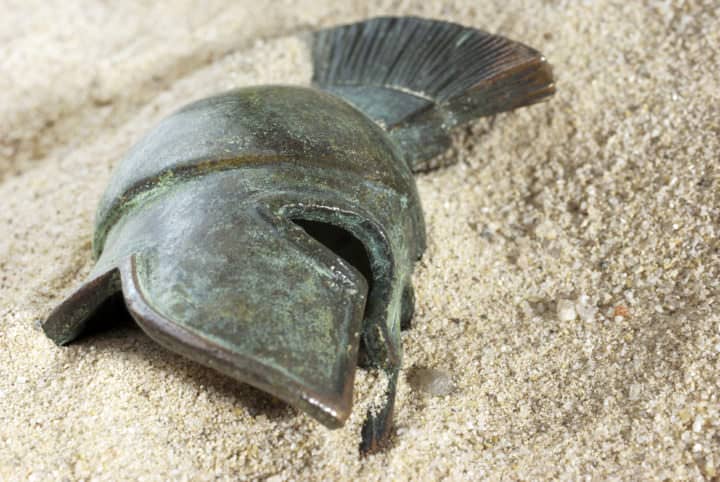 Battle of Sphacteria took place in Ancient Greece during the Sicilian Wars. This battle dates back to 425 B.C.E., a fight between the Athens and Sparta for land during the Peloponnesian War. The Battle of Sphacteria began on the island of its namesake after Spartans, displaced from failed peace negotiations after the Battle of Pylos, were attacked and forced to surrender by Athenians led by Cleon and Demosthenes. Here’s more information:
Battle of Sphacteria took place in Ancient Greece during the Sicilian Wars. This battle dates back to 425 B.C.E., a fight between the Athens and Sparta for land during the Peloponnesian War. The Battle of Sphacteria began on the island of its namesake after Spartans, displaced from failed peace negotiations after the Battle of Pylos, were attacked and forced to surrender by Athenians led by Cleon and Demosthenes. Here’s more information:
Setting the Stage for the Battle
Athens and Sparta were warring over lands. The Battle of Pylos resulted in the isolation of about 400 Spartan soldiers and, as a result, Sparta sued the Athens for peace. Ships of their Peloponnesian fleet were surrendered at Pylos to secure their wishes and a negotiation was arranged. But the armistice failed and the Athenians declined returning the surrendered ships in the aftermath.
They claimed their fortifications had been desecrated during the alleged truce that Sparta moved to arrange. The Athenian forces intended to starve out the stranded Spartans rather than fight them, but the Spartans cleverly developed a system that turned the tables. Suddenly the Spartans, who worked with Helots to create a new supply stream of food resources, looked like they would last longer than possibly the Athenians themselves who were already short on rations.
Fighting at Sphacteria
Denying the peace treaty was a decision largely associated with Cleon. Now that the situation looked grave, Cleon faced much criticism for his advocacy of turning down the offer for peace. He attempted to shift the blame and maintained an arrogant attitude that, in the end, landed him in the challenge to lead an attack on the Spartans.
He accepted and swore to remove them within twenty days. Suddenly all the talk he did was requiring a walk. He put Demosthenes as his partner in command despite being placed into a position of power through untraditional loopholes of decision-making. The Athenians were able to catch the Spartans off-guard because of the assumption that the ships approaching – per plans Demosthanese had already been working on – were merely taking nightly watches as they did every night.
Consequences of the Conflict
The Spartans found themselves in a very precarious situation and, within not much time, so many had been taken prisoner that they moved to surrender. In total, the 440 Spartans that had been on Sphacteria were now 292 surviving by surrender. An entire 120 of those 292 came from an elite class within Spartiate society. Lo and behold, the seemingly mad Cleon had become somewhat of a hero for this victory.
The Battle of Sphacteria was one which changed the very nature of warfare itself. In particular for the Athenians, Athens would become increasingly aggressive in its tactics. It would take a number of changes before, in 421 B.C.E., the two sides would finally agree on the negotiation of the Peace of Nicias, the treaty also known as the Fifty Year Peace.
Source:

